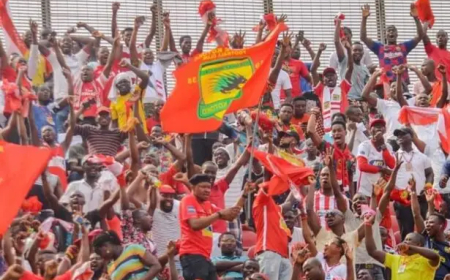Fuel allowance scrapped: Gov’t, on average, will save over GH¢121m in 4 years – Dr Sharif Khalid
The government’s decision to scrap fuel allowances is expected to save the state over GH¢121 million over four years, according to economist Dr. Sharif Khalid.

Fuel Allowance Scrapped: Gov’t to Save Over GH¢121 Million in 4 Years – Dr. Sharif Khalid
The Ghanaian government is projected to save more than GH¢121 million over a four-year period following its decision to scrap fuel allowances for certain public officials, economist Dr. Sharif Khalid has revealed.
Speaking at a policy dialogue on public expenditure and fiscal prudence, Dr. Khalid explained that the move represents a bold step in tackling leakages within government spending and addressing inefficiencies in resource allocation.
A Strategic Cost-Cutting Reform
The scrapping of fuel allowances, which previously benefitted a wide range of public servants including ministers, directors, and other high-level appointees, is part of a broader government reform package aimed at reducing recurrent expenditure.
According to Dr. Khalid, the projected GH¢121 million savings is a conservative estimate based on current market fuel prices and typical allowance claims by eligible officials over a 48-month period.
“It’s not just symbolic. This is a meaningful fiscal decision with measurable benefits,” Dr. Khalid stated. “Fuel allowances, though often seen as a perk, have long been a burden on the public purse.”
Public Support and Skepticism
The decision has sparked a wave of public reactions. Some citizens and civil society organizations have applauded the move, seeing it as a necessary adjustment to rein in government excesses during challenging economic times.
Others, however, remain skeptical, warning that savings on paper may not always translate into real-world fiscal discipline.
“Will this policy be consistently applied across all ministries, departments, and agencies, or will we see backdoor compensations like vehicle allocations and increased imprest accounts?” asked Linda Mensah, a governance analyst at the Center for Budget Accountability.
Impact on Government Officials
Insiders say that while the move has unsettled some public servants, the Ministry of Finance is working on restructuring transport support schemes, possibly replacing fuel allowances with mileage-based reimbursements for essential travel.
Government spokespersons insist that no essential operations will be hampered, and cost-saving will not affect the productivity of public officeholders.
A Step Toward Broader Fiscal Reform
This measure is among a series of reforms being rolled out under Ghana’s medium-term fiscal strategy, which includes a review of procurement policies, wage bill restructuring, and digitization of public services to reduce overheads.
Dr. Khalid emphasized that these reforms, if fully implemented and monitored, could contribute significantly to restoring macroeconomic stability and improving investor confidence in Ghana’s public finance management.
Conclusion
While it remains to be seen how effectively the fuel allowance policy will be enforced, the projected savings of over GH¢121 million presents an opportunity for the government to reallocate resources to critical development sectors like health, education, and infrastructure.
The success of this reform will ultimately depend on transparency, consistency, and political will — all of which are under close public scrutiny.
What's Your Reaction?




















































































